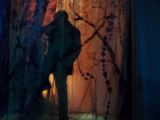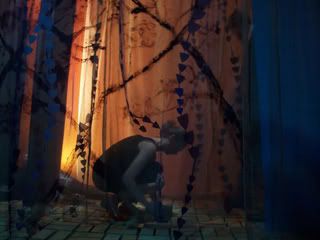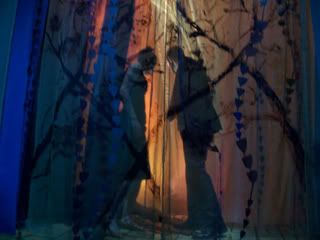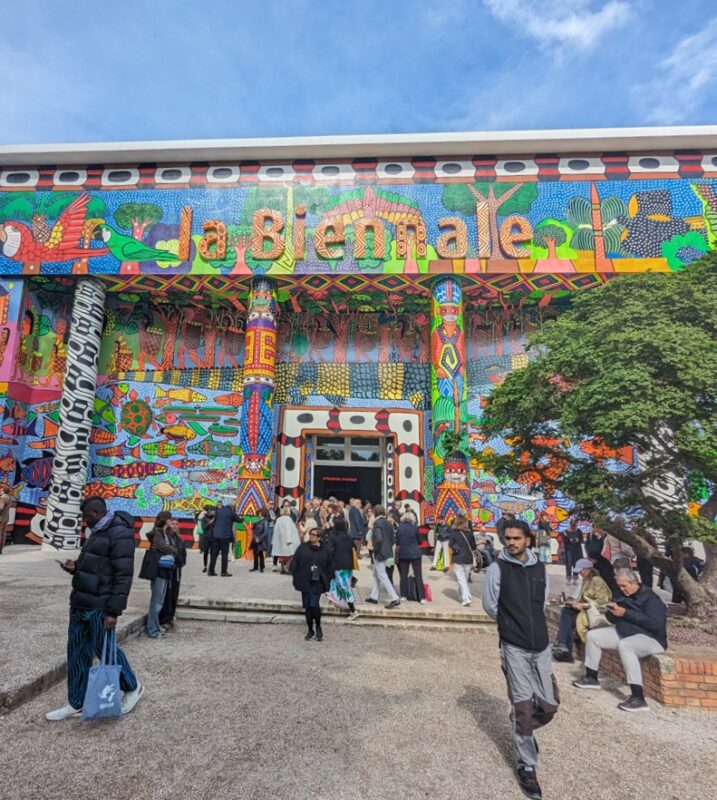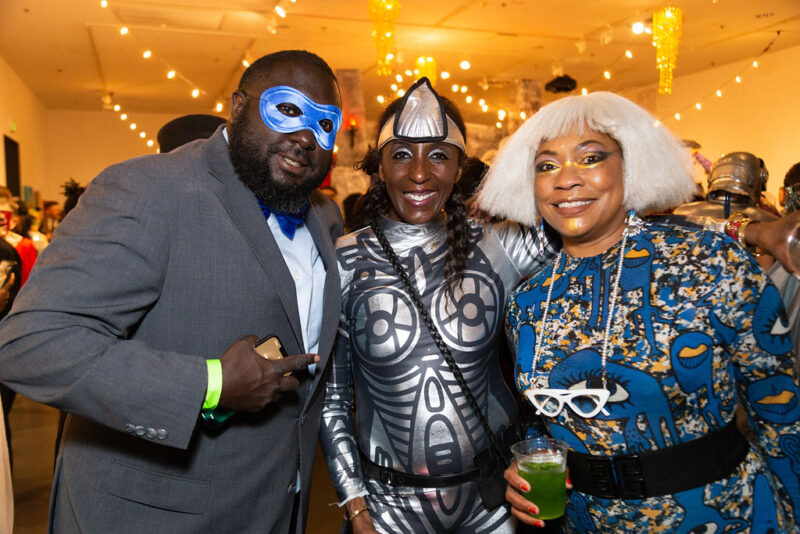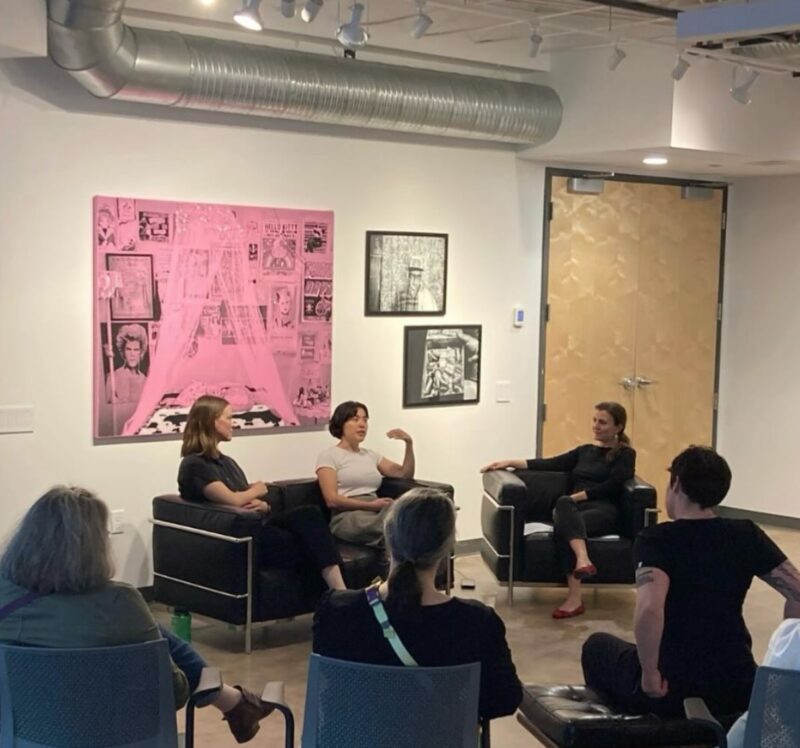It’s the opening evening at the final of the three thesis exhibits at MICA. I am sitting on the floor at the back of the fox gallery and the artist, Jodie Lieburn is dressed in a black evening dress and waving a remote control over our heads to jump-start her piece, “Romantic Absurdity”. She is so earnest and calm I wondered if it was part of the act.
Lieburn’s performance/installation is an elliptical vignette where the narrative is incompletely apprehended yet the ensuing scene hints the much larger issue of suppression. The curtain opens to reveal a diorama reminiscent of the theatrics of Wes Anderson with the technical effects of netted pillars with hand-sewn-on leaves, a green scrim with painted-on tree limbs, one gnarly tree made of cushion and duct tape and a forest floor of dusty green foam bricks that bring to mind Michael Gondry, via the Science of Sleep. There is a pinkish early morning/early evening haze through the layers that silhouettes a tall and thin female figure (Magnolia Laurie). In this atmospheric child-like tableau, a misty feeling of sitting on the edge of a storybook arises and everyone is fidgeting and waiting. The sound begins and as the slender figure comes to life, suddenly, almost in disruption, another actor (Eric Johnston) emerges from the audience. He parts through to the stage and the slits in the scrims open to the pure confirming pink and encourages us to enter. In this act we are brought to attention that we are in the participatory and therefore the scene more palpable.
What—
Were you going—
Can you see it—
What—
Did we—
Remember—
I didn’t—
The dialogue is disrupted and incongruent as parts overlap and cut off. The actors, Johnston and Laurie, interact while pantomiming to the prerecorded sound. Without movement from their lips not only are we removed but we are put in a dreamlike state of perpetual misunderstanding. With this device their interaction is rendered clumsy and empathetic, another removal from the real emotions at hand. The dynamics of the narrative then gains steady momentum. From invitation and innocence the mood shifts to the confrontational. The actors twist and collide. Because the actual thematic content is quite a bit more to it and less conventional the quaint scene is disrupted and rendered uncomfortable, almost unbearable, like a nightmare or the remembrance of a suppressed feeling or action. In their aggression their feet tear the green bricks from the floor. The search, before becoming too violent, then suspends to the smoothing out of their clothes, a ritual quite sexual. The metaphor of conflict and misunderstanding is elevated to this sexual tension and is just shrouded enough to keep us with them—watching wide-eyed and waiting.
You wouldn’t are, would you—
We are not here to construct the heavens—
Were here to destroy and flitter our lives on meaningless affairs—
Why can’t you understand that—
You wouldn’t care would you—
I bet you can’t even smell that damn trees—
This is the pinnacle of the performance. Suspension and release elevate the act and the audience towards resolution. Afterwards it falls away into a sympathetic and more intimate affair. The scrims peek out the pinkish light as the sensual seaward build-up against the campy illusions of the set creates confusion, reconciliation, and then…maybe redemption? But we are right with them because of the humble invitation and quick build up. The tableau is left ravaged, the green-brick floor destroyed. What were they looking for? Lost innocence? What had they found?
This is not Victorian theater—Peter Pan, Alice in Wonderland, this is something visceral, sweet and fleeting. With Lieburn’s direction Johnston and Laurie magically build the elephant. And in a tempest simple honesty (with the help of her hand-crafted set) is made brazenly earnest and public. And then they make the elephant disappear right in front of us. The real issues still remain at large. What we are left with are some mysterious clues around the central object we never get to see. What we are left with is a subversive and lingering haunt.
